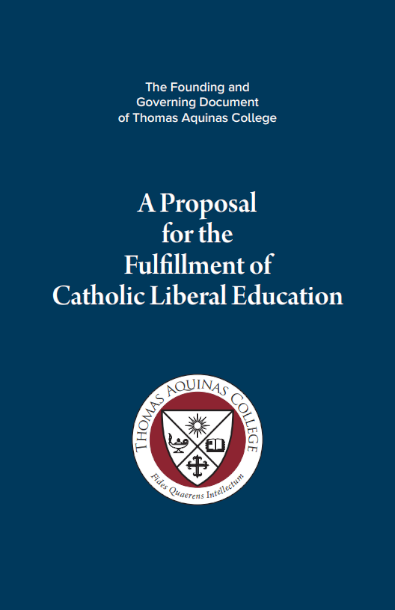
Earlier in this work reference was made to the almost universal abandonment of genuine liberal education in the American colleges. It was observed that liberal education, which in the past was the soul of higher education, has been largely replaced by professional and technological curricula. What remains under the name of liberal education is a collection of courses which purports to acquaint the students with various facets of “culture” and “learning.”
This version of liberal education is fittingly called humanism because its concern is with the works of man. Man’s scientific and literary accomplishments are thought worthy of falling within this collection of things to be studied because they are brilliant human achievements. Humanism, which in the Renaissance began to preempt all other contenders as the Weltanschauung of higher education, seems chiefly to have come about as a justification for education, when men came increasingly to doubt the power of reason to know reality. The modern doctrine of academic freedom, in the main accepted by contemporary schools, officially makes this same skepticism the fundamental tenet of education. Holding as it does that every dogma (save itself) is of its nature open to free inquiry, academic freedom implies that nothing which the human intelligence claims to know is really known, but only dubitable. This is to say that absolute skepticism is the abiding condition in education and that reality everlastingly and in every way eludes man in his efforts to know it. The fact that contemporary “liberal arts” are so thoroughly historical and humanistic is explained in that the value of man’s intellectual achievements is not grounded in the truth of his accumulated wisdom, but in the fact that wisdom is a human creation, a glorious product in which to rejoice. Liberal education then is not seen at bottom as something good for man, but as something worth studying and preserving for the simple reason that it is from man.
Against the popular inclination to identify liberal education as humanistic, is another view of longer standing that urges itself upon us by its intrinsic merits. That man uses his leisure to become acquainted with the ideas of the greatest thinkers in his tradition and to steep himself in an understanding of the intellectual culture that produced him may be a good thing, but it appears false that such should be the sole or even primary intellectual interest that occupies his leisure. Though one might intend to confine his study to the learned achievements of men, the very subject he studies will show the vanity of such a limited end, for these learned achievements, preserved in what are often called the Great Books, are themselves efforts to bring the student or reader to some understanding of reality itself.
One cannot read these cherished Great Books of western civilization as simply of historical and humanistic interest without betraying their authors, whose principal purposes, by and large, were through their writings to speak not historically, but rather scientifically and philosophically, proposing universal truths, abstracting from the here and now. Education is recognized almost universally by these great authors to be not about ideas, as if they were important simply in themselves, but about things. The great ideas that humanism regards as outstanding instances of human creativeness were thought to be worthy by the minds that produced them, not because they were creative or novel, but because they were inventive of nature’s truth.
Unless this basic orientation to truth be recognized and retained, education and intelligence quickly become meaningless. The older position on liberal education and the common sense conception of knowledge both see the life of the intelligence defined by reality as its object and justified by truth about that reality as its end. Philosophy begins in wonder so that it might end in wisdom. And unless man, even when he first wonders about reality, apprehends it in some fundamental way, albeit imperfectly and confusedly, his wonder is meaningless and his hope to know the truth is vain. In fact man since time immemorial has had a non-reflective confidence that he does understand reality from his first experience with it, and that he is already a knower of the world “out there” as he begins reflectively to consider its meaning, to clarify its nature in his understanding, and to pursue its secrets. Reality is possessed through knowledge by all men in a general and indistinct but eminently certain way.
That there is a pre-reflexive, common consciousness of reality is patent in the fact that men are able to communicate with each other at all. If all men did not in some way form like ideas of the world “out there,” there could be no meeting of their minds through speech and conversation. At least the basic ideas of reality must be in men’s minds, and indeed what is first meant by reality would be that which these primary concepts represent. The assumption of a common experience and of common conceptions about it belongs not only to men living in the same era but also to all men in all ages, as is shown by the very writing and reading of the aforementioned Great Books. When men come to reflect upon their knowledge of reality they are already possessors of it, and their reflective and methodical elaborations of it do not destroy this possession, unless these efforts in effect deny the reality and the truth of these common and fundamental concepts, and unless they fail to build their science upon them. Such a denial would reject the primary experience that makes all else meaningful. But the science that establishes and builds itself faithfully upon common experience constitutes that wisdom called the perennial philosophy, and it is this which is the substance of our intellectual patrimony and which alone makes true liberal education possible.
Previous: The Catholic Teacher
Next: Liberal Education, Its Parts and the Order Among Them







